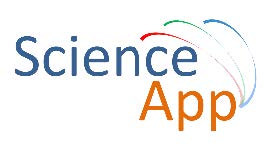| In Conjunction With ICCV 2021 |

|
As well as the main conference, the ACVR 2021 workshop will be a virtual experience.
The last decade has witnessed the significant impact of Computer Vision and Robotics on real-world products. This has been possible thanks to the results of traditional Computer Vision and Robotics problems such as tracking, 3D reconstruction, detection, recognition, odometry, navigation, and ultimately, thanks to deep learning. However, most of these results have focused on constrained application scenarios that do not involve the integration of feedback from the user. Since these applications do not consider the user's intentions and goals, they tend to be of limited use when it is necessary to provide assistance to humans.
With the pervasive successes of Computer Vision and Robotics and the advent of industry 4.0, it has become paramount to design systems that can truly assist humans and augment their abilities to tackle both physical and intellectual tasks. We broadly refer to such systems as "assistive technologies". Examples of these technologies include approaches to assist visually impaired people to navigate and perceive the world, wearable devices which make use of artificial intelligence, mixed and augmented reality to improve perception and bring computation directly to the user, and systems designed to aid industrial processes and improve the safety of workers. These technologies need to consider an operational paradigm in which the user is central and can both influence and be influenced by the system. Despite some examples of this approach exist (e.g., OrCam, HoloLens), implementing applications according to this "human-in-the-loop" scenario still requires a lot of effort to reach an adequate level of reliability and introduces challenging satellite issues related to usability, privacy, and acceptability.
The main scope of ACVR 2021 is to bring together researchers from the diverse fields of engineering, computer science, social and biomedical sciences who work in the context of technologies involving Computer Vision and Robotics related to real-time continuous assistance and support of humans while performing any task.
Research papers are solicited in, but not limited to, the following topic areas:
- Symbiotic Human-Machine Systems;
- Computer Vision to aid Industrial Processes;
- Augmented and Mixed Reality;
- Computer Vision to Improve the safety of workers;
- Human-Robot Interaction;
- Home Healthcare;
- Technology for Cognition;
- Automatic Emotional Hearing and Understanding;
- Activity Monitoring Systems;
- Manipulation Aids;
- Smart Environments;
- Safety and Security;
- Ambient Assistive Living;
- Privacy-preserving systems;
- Robot assistants;
- Quality of Life Technologies;
- Navigation Systems;
- Mobile and Wearable Systems;
- Applications for the Visually Impaired;
- Sign language recognition and applications for hearing impaired;
- Applications for the Ageing Society;
- Personalized Monitoring;
- Egocentric and First-Person Vision;
- Applications to improve the health and wellbeing of children and elderly;
- Autonomous Driving;
- Driver Assistance Systems;
- Brain-Computer Interfaces (BCI) for Assistive Systems;
- Multi-modal Human-Centered Systems.





